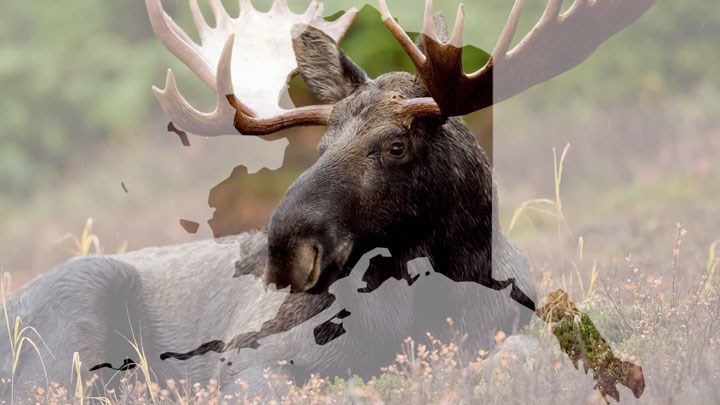
by Cody McLaughlin - Monday, May 2, 2022

The Biden Administration’s Department of Interior (DOI) is making waves in hunting community news again this week by following through on a previously deferred action in Alaska and abruptly closing millions of acres of public lands in Alaska to caribou and moose hunting for the prime rut-hunting months of August and September except for “federally-qualified subsistence hunters.”
On March 30, the Federal Subsistence Board (FSB) finally acted on its deferred Wildlife Special Action (WSA21-01) from last year and closed caribou and moose hunting to non-local caribou and moose hunters in the affected areas from Aug. 1 to Sept. 30, 2022. The decision was made despite that it lacks any basis in wildlife science and goes against the advice of the Alaska Department of Fish and Game (ADFG), which commented on the record that the action was not justified and violated provisions of the Alaska National Interest Lands Claim Act. As noted in an ADFG advisory on April 7, the closure, which initially targeted more than 60 million acres, was modified to close caribou hunting on Noatak National Preserve and Bureau of Land Management (BLM) lands between the Noatak and Kobuk rivers in Game Management Unit (GMU) 23 and close moose hunting on federal public lands in GMU 23. The decision stands for the 2022-2024 regulatory cycle.
According to the ADFG advisory, the state is analyzing its options, including a potential legal challenge, and to date has not modified its regulations in response to this federal action. ADFG will not offer refunds for hunting licenses or the big-game locking tags that nonresident hunters are required to purchase.
A Fight Over a Year in The Making
As this NRA Hunters’ Leadership Forum (HLF) website tracked, when the proposal to close hunting in the region by “non-federally qualified users” was first pushed, a coalition of hunter-backed groups including the NRA, Safari Club International, the Dallas Safari Club and the Sportsmen’s Alliance immediately mobilized to help American hunters make their voices heard. They managed to force the FSB to defer the closure by driving more than 2,400 activists nationwide to sign a petition opposing the measure.
In an April 2021 letter, the Alaska Department of Fish and Game, which manages the resources in question for the benefit of all, also opposed the measure on the grounds that “this special action request as the rationale given does not meet the requirements for such a closure … for either the conservation of healthy populations of moose and caribou or for the continuation of subsistence uses of such populations.”
What Are Subsistence Hunting and Harvests?
The federal government’s BLM defines a “federally qualified subsistence hunter” as “the customary and traditional uses by rural Alaska residents of wild, renewable resources for direct personal or family consumption as food, shelter, fuel, clothing, tools or transportation; for the making and selling of handicraft articles out of nonedible byproducts of fish and wildlife resources taken for personal or family consumption; and for the customary trade, barter or sharing for personal or family consumption.”
The current rural subsistence harvest, according to the BLM, is about 354 pounds of food per person per year. That is more than the U.S. average consumption of 255 pounds of domestic meat, fish and poultry per year. (The average American uses a total of 1,371 pounds of all foods per year.) However, there are other important uses of subsistence products such as clothing, fuel, transportation, construction, home goods, sharing, customary trade, ceremony and/or arts and crafts.
While federal law grants technical authority for any Alaska public land closure to the DOI, the law’s original intent was to add a protection mechanism for both wildlife and Alaska’s rich, culturally significant history of subsistence hunting. This case is different. To date there has been no data to support the closure. The proposal ignores the principal requirement to demonstrate the “significant change in resources” threshold to cut off hunting access to thriving moose and caribou herds over millions of acres of public lands.
This NRA website will continue to monitor the issue. In the meantime, for additional information about the closures and the federal subsistence regulations go to https://www.doi.gov/subsistence/wildlifeor contact the Office of Subsistence Management at 907-786-3888 or 800-478-1456.
About the Author
Cody McLaughlin is a conservationist and conservative thought leader on public policy issues including hunting, fishing, gun rights, free-market tax and wage policy and the environment. He works as a GOP consultant for conservative political causes, managing clients’ digital communications and online presence and as a trustee of the New Jersey Outdoor Alliance, helping to represent the state’s 1.2 million sportsmen in the political arena.
E-mail your comments/questions about this site to:
[email protected]
Proudly supported by The NRA Foundation and Friends of NRA fundraising.
